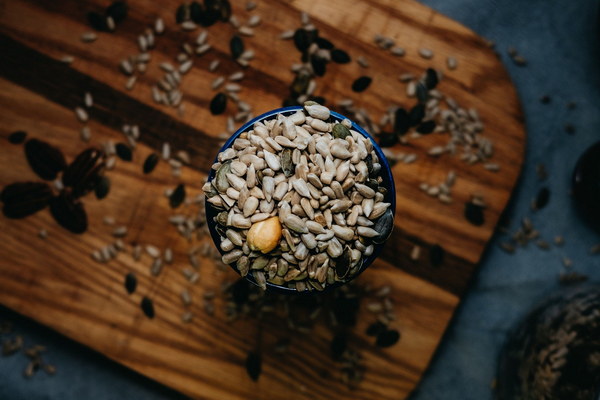Nurturing Health PostPancreatic Surgery A Comprehensive Guide to Recovery and LongTerm Wellness
After undergoing pancreatic surgery, the journey to recovery and long-term wellness requires a holistic approach to health and lifestyle adjustments. The pancreas, a vital organ responsible for producing insulin and digestive enzymes, plays a crucial role in maintaining blood sugar levels and aiding digestion. When surgery is necessary, it is important to focus on both physical and emotional well-being to ensure a smooth recovery and prevent complications. This article will provide a comprehensive guide to post-pancreatic surgery care, including diet, exercise, and mental health support.
1. Diet and Nutrition
A balanced diet is essential for recovery and maintaining optimal health after pancreatic surgery. Here are some key considerations:
a. Low-fat diet: High-fat meals can exacerbate digestive issues and disrupt the pancreas's ability to produce digestive enzymes. Opt for low-fat, lean proteins, and healthy fats from sources like avocados, nuts, and seeds.
b. Small, frequent meals: Eating smaller, more frequent meals can help prevent digestive discomfort and keep blood sugar levels stable. Aim for six to eight small meals per day.
c. Hydration: Adequate hydration is crucial for digestion and overall health. Drink plenty of water throughout the day, and avoid sugary beverages and alcohol.
d. Fiber-rich foods: Incorporate fiber-rich foods such as fruits, vegetables, and whole grains to promote digestive health and prevent constipation.
e. Nutritional supplements: Depending on your specific health needs, your healthcare provider may recommend vitamin and mineral supplements to address any deficiencies caused by the surgery.
2. Exercise and Physical Activity
Regular exercise can aid in recovery, improve cardiovascular health, and maintain a healthy weight. Here are some tips for exercising after pancreatic surgery:
a. Start slow: Begin with light activities, such as walking, and gradually increase the intensity and duration of your workouts as you recover.
b. Listen to your body: Pay attention to any pain or discomfort during exercise. If you experience pain, reduce the intensity or seek medical advice.
c. Strengthening exercises: Incorporate strength training exercises to build muscle and improve overall fitness. Focus on exercises that target the core, legs, and upper body.
d. Flexibility and stretching: Engage in flexibility and stretching exercises to improve range of motion and prevent muscle tightness.
3. Mental Health Support
The emotional impact of pancreatic surgery should not be overlooked. Here are some strategies to maintain mental health:
a. Seek support: Connect with others who have undergone similar surgeries through support groups or online communities. Sharing experiences and receiving support can be incredibly beneficial.
b. Professional help: Consider seeking therapy or counseling to address any emotional or psychological challenges you may face during your recovery journey.

c. Mindfulness and relaxation techniques: Practice mindfulness, meditation, or deep-breathing exercises to manage stress and promote relaxation.
4. Regular Follow-up and Monitoring
Regular follow-up appointments with your healthcare provider are crucial to monitor your recovery and address any concerns. Here are some key points to discuss during these appointments:
a. Blood sugar levels: Regularly monitor your blood sugar levels to ensure they remain within a healthy range.
b. Digestive function: Assess your digestive health, including bowel movements and any discomfort you may experience.
c. Nutritional status: Discuss any nutritional concerns with your healthcare provider, and make adjustments to your diet as needed.
d. Medications: Review your medication regimen and ensure you are taking the correct dosage and following any prescribed guidelines.
In conclusion, recovery and long-term wellness after pancreatic surgery require a comprehensive approach that includes diet, exercise, mental health support, and regular follow-up with healthcare providers. By focusing on these aspects, you can improve your quality of life and reduce the risk of complications. Remember, patience and perseverance are key to a successful recovery journey.









